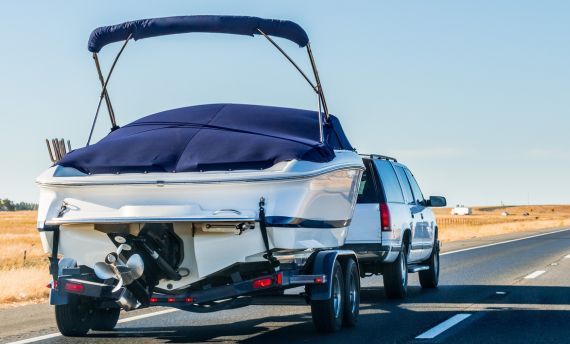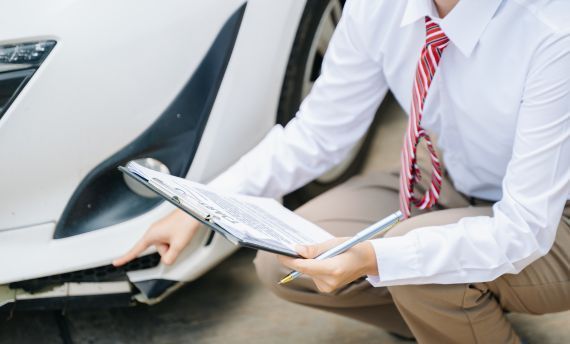
Boat ownership can bring immense joy and freedom, allowing individuals to explore the beautiful waterways of Pennsylvania. However, with that joy comes responsibility, particularly in terms of ensuring that your vessel is adequately protected. One of the most common questions among boat owners is whether their insurance policy includes coverage for towing and salvage. Understanding the nuances of boat insurance in Pennsylvania is crucial for any boat owner.
The Basics of Boat Insurance
Before diving into the specifics of towing and salvage coverage, it's essential to grasp the fundamentals of boat insurance. Like auto insurance, boat insurance is designed to protect your investment against various risks, including accidents, theft, and damage. In Pennsylvania, boat insurance is not required by law, but it is highly recommended for anyone who owns a watercraft. Without it, boat owners may find themselves facing hefty repair bills or liability claims that could significantly impact their financial stability.
Types of Boat Insurance Coverage
Boat insurance typically comes in several forms, each offering different levels of protection. The most common types include:
- Liability Coverage: This protects you against claims made by others for bodily injury or property damage caused by your boat.
- Physical Damage Coverage: This covers damage to your boat from collisions, theft, or vandalism.
- Medical Payments Coverage: This helps cover medical expenses for you and your passengers in the event of an accident.
In addition to these primary types, many policies may offer optional coverages such as uninsured boater coverage, which protects you if you're involved in an accident with a boat that lacks insurance. Another important aspect to consider is the coverage for personal property, which can safeguard your fishing gear, electronics, and other belongings on board. Understanding these various options allows boat owners to tailor their insurance policies to fit their specific needs and activities on the water.
Understanding Towing and Salvage
Towing and salvage are two critical components of boat insurance that can save boat owners from significant financial burdens. Towing refers to the assistance provided when a boat becomes disabled and needs to be towed to safety. Salvage, on the other hand, involves recovering a boat that has sunk or is otherwise in danger of being lost.
Both towing and salvage can be costly endeavors, and having the right coverage can make a substantial difference in how much you pay out of pocket in case of an emergency. For instance, towing fees can vary widely depending on the distance and the service provider, sometimes reaching hundreds of dollars. Similarly, salvage operations can be complex and expensive, especially if specialized equipment is required to recover a sunken vessel. Therefore, understanding the terms and limits of your towing and salvage coverage is crucial, as it can provide peace of mind and financial protection when you need it most.
Moreover, many insurance providers offer additional services that can enhance your towing and salvage experience. Some policies may include 24/7 roadside assistance for your boat, ensuring that help is just a phone call away, regardless of the time or location. Additionally, certain insurers may have partnerships with local towing companies, which can expedite the process and potentially reduce costs. This level of support can be invaluable, especially for those who frequently venture into remote waters or engage in adventurous boating activities.
Does Standard Boat Insurance Cover Towing?
When it comes to towing coverage, the answer can vary significantly depending on the specifics of your policy. Many standard boat insurance policies do not automatically include towing coverage, which means boat owners may need to purchase it as an add-on or endorsement. This omission can lead to unexpected expenses and stress during an already challenging situation, such as a breakdown on the water.
What to Look for in Towing Coverage
When considering towing coverage, it's essential to understand what is included. Some policies may cover:
- The cost of towing your boat to a safe location if it breaks down.
- Emergency assistance for minor repairs on the water.
- Coverage for towing to a repair facility if needed.
It's crucial to read the fine print and clarify with your insurance provider about the specifics of towing coverage, as exclusions can vary widely. For instance, some policies might not cover towing if the breakdown occurs due to negligence, such as running out of fuel or ignoring maintenance schedules. Additionally, the distance that towing coverage applies can also differ, with some policies limiting coverage to a certain number of miles from the original location of the breakdown.
Cost of Towing Coverage
The cost of adding towing coverage to your boat insurance policy can vary based on several factors, including the size of your boat, the type of coverage you choose, and your insurance provider. Generally, this additional coverage is relatively affordable compared to the potential costs associated with towing services, which can range from hundreds to thousands of dollars depending on the situation. Furthermore, many insurance companies offer bundled packages that include towing and other essential services, which can lead to cost savings while providing peace of mind on the water.
It's also worth considering the frequency of your boating activities. If you frequently take your boat out on longer trips or to remote locations, investing in comprehensive towing coverage can be a wise decision. In such scenarios, the likelihood of needing assistance increases, making the additional premium a small price to pay for the security and convenience it provides. Additionally, some boaters may find value in roadside assistance programs that extend coverage to trailers, ensuring that both the boat and its transportation are protected in case of an emergency.
Salvage Coverage in Pennsylvania
Salvage coverage is another crucial aspect of boat insurance that many boat owners overlook. This type of coverage is designed to help recover a boat that has sunk or is at risk of sinking. In Pennsylvania, the need for salvage coverage can arise due to the state's diverse waterways and varying weather conditions. With numerous lakes, rivers, and access to the Atlantic Ocean, Pennsylvania boaters face unique challenges that can lead to unexpected incidents on the water. From sudden storms that can capsize vessels to submerged obstacles that can cause a boat to run aground, having salvage coverage can provide peace of mind for boat owners navigating these unpredictable environments.
What Salvage Coverage Typically Includes
Salvage coverage often includes:
- Costs associated with recovering a sunken or stranded boat.
- Expenses related to environmental cleanup if the boat poses a pollution risk.
- Legal fees if there are disputes regarding salvage rights.
Understanding what your salvage coverage entails is essential, as it can significantly impact your financial responsibility in the event of a loss. Additionally, salvage operations can be complex and costly, often requiring specialized equipment and trained professionals to safely retrieve a vessel. The expenses can quickly escalate, especially if the recovery involves hazardous conditions or remote locations. Therefore, having comprehensive salvage coverage can alleviate the financial burden and ensure that you are adequately protected against unforeseen circumstances.
Evaluating the Need for Salvage Coverage
For many boat owners, the question of whether to include salvage coverage in their policy may depend on several factors, including:
- The type and value of the boat.
- The typical conditions in which the boat is used.
- Past experiences or incidents related to salvage in the area.
Considering these factors can help determine whether salvage coverage is a necessary addition to your insurance policy. For instance, high-value boats or those used in more challenging waters may warrant more extensive coverage due to the increased risk of incidents. Furthermore, understanding the local boating community's history with salvage operations can provide insight into potential risks. Engaging with local marinas or boating clubs can also offer valuable information on common hazards in specific waterways, helping you make an informed decision about your insurance needs.
Legal Implications of Towing and Salvage in Pennsylvania
In addition to the financial aspects of towing and salvage coverage, it's essential to understand the legal implications involved. Pennsylvania has specific laws and regulations governing the towing and salvage of boats, which can affect how insurance claims are handled.
Understanding Pennsylvania's Salvage Laws
Under Pennsylvania law, salvage rights can be complex. When a boat is in distress and requires salvage, the salvor (the person or company performing the salvage) may have a legal claim to compensation for their services. This can lead to disputes over the amount owed, particularly if the value of the boat is in question. The law distinguishes between "salvage" and "finders" rights, meaning that the salvor must prove that their efforts were necessary to save the vessel from imminent peril, which can sometimes be a gray area in legal terms.
Boat owners should be aware of these laws and how they may impact their insurance claims. Having a clear understanding of salvage rights can help avoid potential legal issues down the line. Additionally, it is advisable for boat owners to keep records of any previous salvage operations or towing incidents, as this information can be crucial in establishing a pattern of behavior and understanding the legal precedents that may apply to their situation.
Insurance Claims Process for Towing and Salvage
When it comes to filing an insurance claim for towing or salvage, the process can vary based on the insurance provider. Generally, the following steps are involved:
- Contact your insurance provider as soon as possible after the incident.
- Provide necessary documentation, including photos and reports related to the towing or salvage.
- Follow up regularly to ensure your claim is being processed.
Understanding the claims process can help boat owners navigate the often-complex world of insurance and ensure they receive the coverage they are entitled to. Additionally, it is important to be aware of the time limits for filing claims, as Pennsylvania law may impose specific deadlines that can affect the outcome of your case. Some insurance policies may also have particular stipulations regarding the choice of towing service or salvage company, which can further complicate the claims process. Therefore, reviewing your insurance policy thoroughly and consulting with a legal expert can provide clarity and help safeguard your rights as a boat owner.
Choosing the Right Boat Insurance Policy
Given the importance of towing and salvage coverage, selecting the right boat insurance policy becomes paramount. Boat owners should consider several factors when shopping for insurance, including coverage options, premiums, and customer service.
Assessing Coverage Options
When evaluating potential insurance policies, it's crucial to assess the coverage options available. Look for policies that offer comprehensive towing and salvage coverage, and don't hesitate to ask questions about what is and isn't included. Comparing multiple providers can help identify the best coverage for your needs. Additionally, consider the geographical areas where you plan to navigate. Some policies may have limitations based on location, which could affect your coverage during trips to popular boating destinations or remote waters. Understanding these nuances can help ensure you are adequately protected no matter where your adventures take you.
Understanding Premiums and Deductibles
Boat insurance premiums can vary widely based on coverage levels, the type of boat, and the owner's experience. It's essential to understand how premiums are calculated and what factors can influence them. Additionally, consider the deductibles associated with towing and salvage claims, as a higher deductible can significantly impact out-of-pocket expenses in the event of a claim. It's also wise to inquire about any discounts that may be available, such as those for safe boating courses or multi-policy bundling with other insurance types. These savings can make a notable difference in your overall insurance costs, allowing you to allocate more of your budget toward enjoying your time on the water.
Additional Considerations for Boat Owners
In addition to towing and salvage coverage, there are other important considerations for boat owners in Pennsylvania. These include safety measures, maintenance practices, and local regulations that can impact both insurance needs and overall boating experiences.
Safety Measures and Best Practices
Implementing safety measures can help prevent incidents that may require towing or salvage. Some best practices include:
- Regularly inspecting your boat for maintenance issues.
- Ensuring all safety equipment is on board and in good condition.
- Staying informed about weather conditions before heading out on the water.
Taking proactive steps can not only enhance safety but also potentially lower insurance premiums over time. Additionally, it is advisable to participate in boating safety courses, which are often offered by local organizations and the U.S. Coast Guard. These courses provide valuable knowledge about navigation rules, emergency procedures, and the proper use of safety equipment, empowering boaters to make informed decisions while on the water. Furthermore, establishing a float plan before embarking on a trip can be a lifesaver; it informs someone on land about your intended route and expected return time, ensuring that help can be dispatched quickly if needed.
Local Regulations and Compliance
Pennsylvania has specific regulations governing boating activities, including licensing requirements and safety regulations. Familiarizing yourself with these laws is essential for compliance and can also impact insurance coverage. For example, some insurance providers may require proof of licensing or safety training to qualify for certain coverage options.
In addition to licensing, boat owners should be aware of the various environmental regulations that protect Pennsylvania's waterways. This includes restrictions on certain types of engines, fuel usage, and waste disposal practices. Adhering to these regulations not only helps preserve the natural beauty of the state’s lakes and rivers but also mitigates the risk of fines or penalties that could arise from non-compliance. Moreover, local boating clubs and associations often provide resources and updates on changing regulations, making it easier for boaters to stay informed and compliant while enjoying their time on the water.
Conclusion
In summary, understanding whether boat insurance covers towing and salvage in Pennsylvania is essential for any boat owner. While standard policies may not automatically include these coverages, they can often be added for an additional premium. Evaluating the specifics of towing and salvage coverage, understanding the legal implications, and choosing the right insurance policy can help protect your investment and ensure peace of mind on the water.
As boating season approaches, taking the time to review your insurance policy and ensure you have the necessary coverage in place can make all the difference in enjoying a safe and worry-free experience on Pennsylvania's beautiful waterways.













